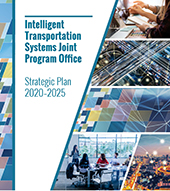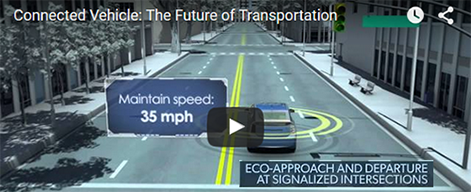Research Archive
Research Progress & Insights

Track 1: Engage Stakeholders
Research Accomplishments
- With the DCM program, the DMA program conducted a Mobility Workshop in December 2010 with over 150 stakeholders. The workshop provided the DMA program with an initial list of proposed applications that were later prioritized for selection.
- The DMA program staff engaged OEM stakeholders through Vehicle Infrastructure Integration Consortium (VIIC) in February 2012. Collaboration with vehicle manufacturers is critical to understand what data is accessible from vehicles and in what format.
-
A more recent workshop in May 2012 (again, in partnership with the DCM program) brought stakeholders together to learn about the progress, products, and plans of the two programs,
Critical Research Insights
- Stakeholders have concurred that new forms of wireless data from mobile devices and vehicles can transform mobility applications. Stakeholders have also expressed interest in participating in the development of high-priority applications.
Next Steps
- Use structured stakeholder engagement in each of the high-priority application bundles to refine ConOps through summer of 2012.
- Continue to update stakeholders on progress and engage with them to understand the impacts and opportunities associated with the emerging applications.
Track 2: Conduct Fundamental Research and Development
Research Accomplishments
- The DMA program has completed a review of decision support systems to identify lessons learned. The program has also initiated an effort to identify analytical needs to support application-impacts assessment.
- The DMA technical teams have completed a ConOps for an Open Source Applications Development Portal (OS Portal), meant as an environment for academic, private-sector, and public-sector programmers to develop new mobility applications.
Critical Research Insights
- Initial policy analysis found that different applications have different levels of confidential and sensitive intellectual property, source code, and/or PII. The level of “open” development that is possible is still under assessment.
Next Steps
- Build and launch OS Portal in the fall of 2012.
- Launch analytical tool enhancement initiative in the fall of 2012.
Track 3: Develop and Test Applications
Research Accomplishments
- Working with stakeholders from Track 1, the DMA program staff defined 30 high-priority applications, grouped into six logical bundles.
- The program awarded six procurements to further develop these concepts with use of a systems engineering approach.
- The DMA program has issued request for task proposals for both the FRATIS and IDTO bundles and is seeking a variety of sites and approaches to inform development for a range of different real-world conditions.
Critical Research Insights
- Significant synergy has been observed in combining traveler, vehicle, and roadside infrastructure data in transformative application concepts.
Next Steps
- Complete ConOps development for each of the application bundles by the summer of 2012.
- Decide which applications should move forward into development with Federal funding.
- Initiate integrated research program of challenges, applications development, and testing by the fall of 2012.
Track 4: Demonstrate Applications
Research Accomplishments
- The DMA program has coordinated with the Safety Pilot Model Deployment test to ensure that mobility-related data elements are captured and utilized for applications development.
Critical Research Insights
- Opportunities to utilize ongoing demonstrations in other parts of the ITS program can be capitalized on with good advance planning.
Next Steps
- Coordinate with completed, ongoing, and planned demonstrations, including the upcoming Safety Pilot Model Deployment (begins in August 2012).
Track 5: Develop Performance and Evaluation Methods
Research Accomplishments
- The DMA program has worked to develop performance measurements for mobility and productivity assessment at the user and system levels.
Critical Research Insights
- Mobility can be defined by taking a traveler-centric view of system performance rather than a facility- centric view.
Next Steps
- Initiate a DMA application evaluation effort in the summer of 2012.
Track 6: Share the Program's Findings and Procedures
Research Accomplishments
- The DMA program hosted a summer webinar series in 2011. The series introduced the public to six prioritized mobility applications cross-cutting the areas of traveler information, freeway and arterial applications, transit, freight, and emergency response. Transportation stakeholder workshops were held in early 2012 that provided input to concept development in each of these areas.
Critical Research Insights
- Program strengths include the use of outreach methods to connect with potential developers of applications with an open-source approach.
Next Steps
- Encourage use of applications posted to the OS Portal.
- Issue data-related challenges (jointly with the DCM program) in the summer of 2012.











